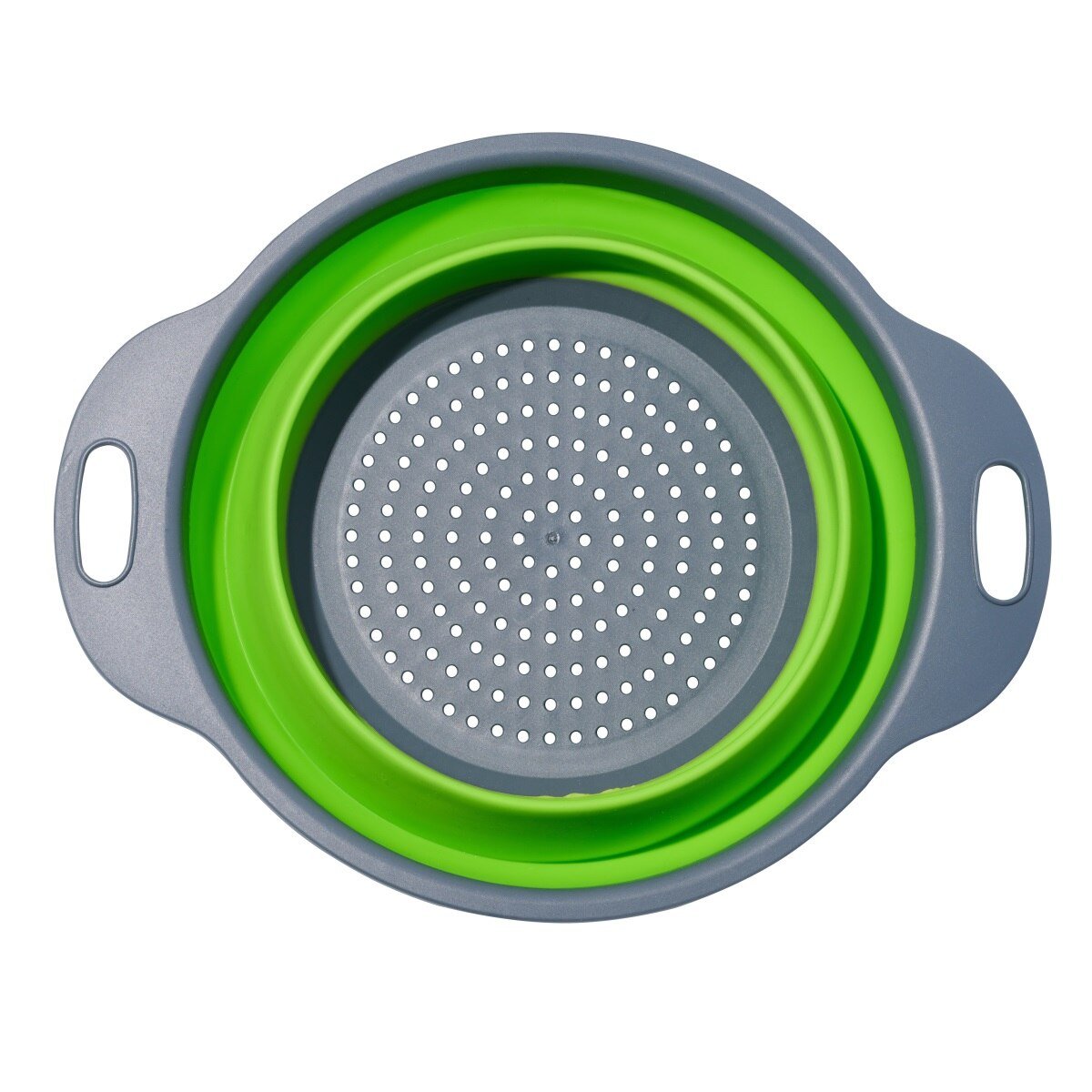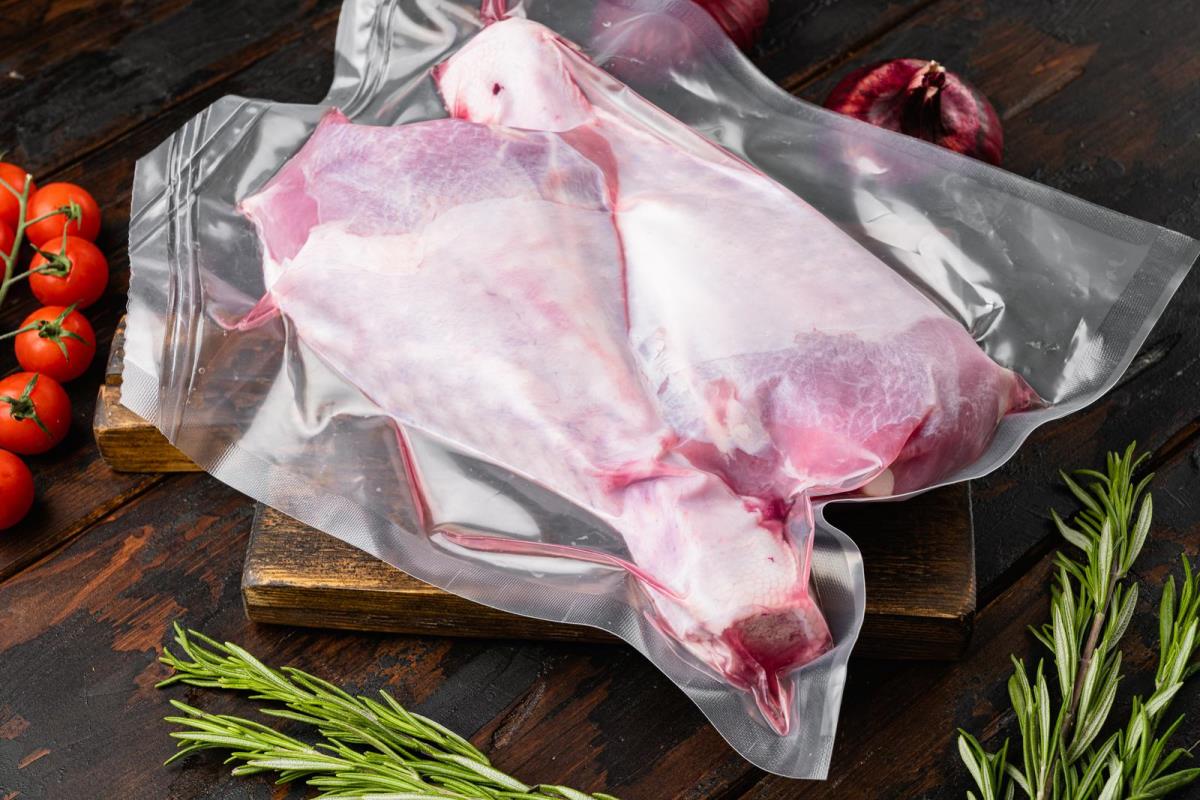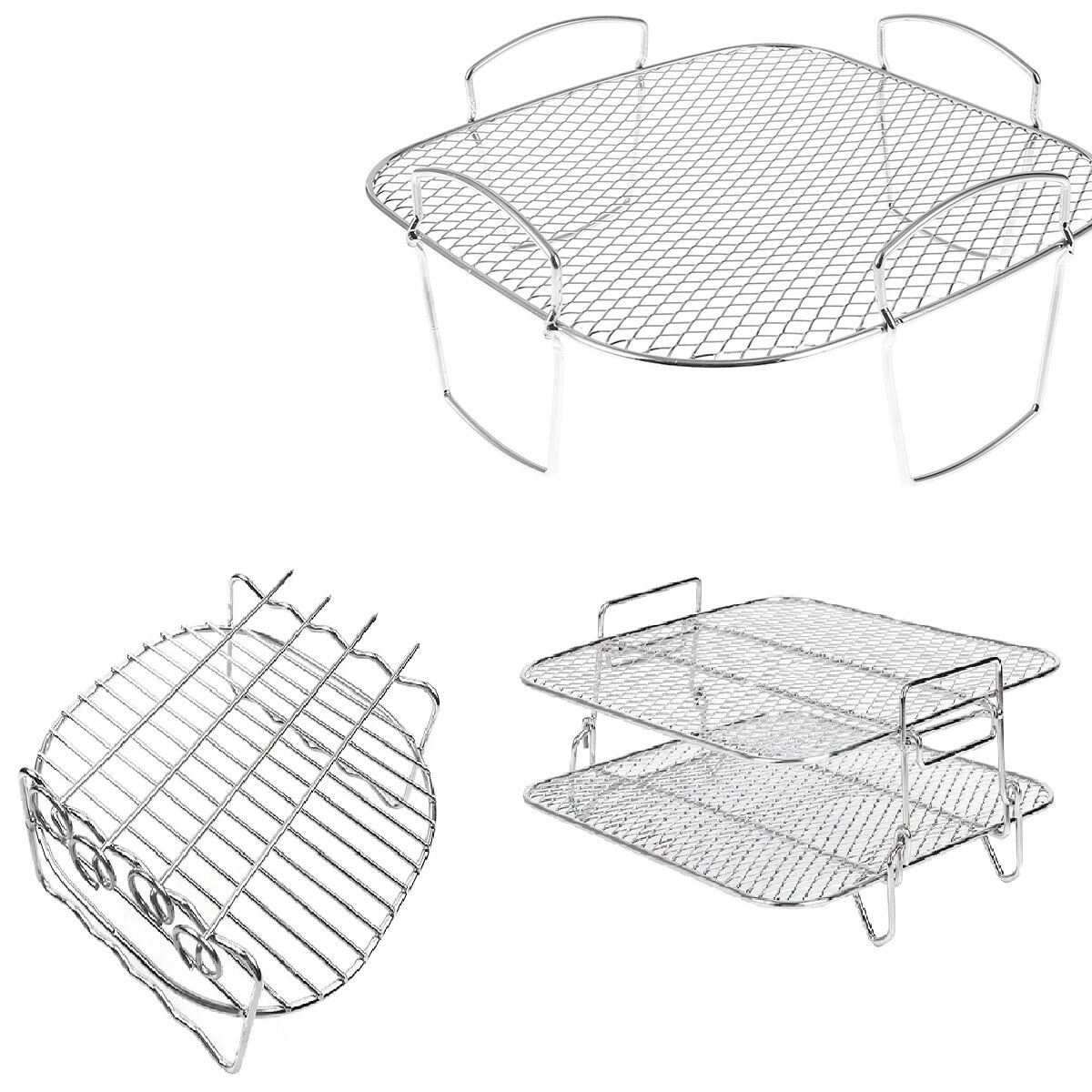
Air fryers have become a kitchen sensation, revolutionizing the way we cook. But with this new technology comes questions about safety and proper use. One common concern is "Will plastic melt in air fryer?". The short answer is yes, plastic can and will melt in an air fryer if exposed to its high temperatures.
Air fryers typically operate between 200-400°F, which is well above the melting point of most plastics. This poses serious risks to both your appliance and your health. Let's dive deeper into why plastic and air fryers don't mix, and explore safe alternatives for your air frying adventures:
Jump to:
The Science Behind Plastic Melting in Air Fryers

Air fryers work by circulating super-heated air around food to create a crispy exterior. This rapid air technology is highly effective for cooking, but it's also why plastic containers or utensils can quickly melt or warp if placed inside.
Most household plastics begin to soften around 170°F and fully melt between 210-340°F. With air fryers reaching up to 400°F, it's clear why plastic doesn't stand a chance.
Types of Plastic and Their Melting Points
Not all plastics are created equal. Here's a quick rundown of common plastic types and their approximate melting points:
- Polyethylene (PE)
- Low-Density Polyethylene (LDPE): 105-115°C (221-239°F)
- High-Density Polyethylene (HDPE): 120-180°C (248-356°F)
- Polypropylene (PP)
- Melting Point: 160-170°C (320-338°F)
- Polyvinyl Chloride (PVC)
- Rigid PVC: 75-105°C (167-221°F)
- Flexible PVC: 100-160°C (212-320°F)
- Polystyrene (PS)
- General Purpose Polystyrene: 90-100°C (194-212°F)
- High Impact Polystyrene (HIPS): 100-105°C (212-221°F)
As you can see, even the most heat-resistant plastics can't withstand typical air fryer temperatures.
See some tips here: Silicone vs Parchment Paper for Air Fryer: Best Choice?
The Dangers of Melting Plastic in Air Fryers
When plastic melts in an air fryer, it's not just an inconvenience - it can be downright dangerous.
Health Risks
Melting plastic releases harmful chemicals and toxins. These can leach into your food, potentially causing serious health issues over time. Some plastics contain BPA (Bisphenol A), which has been linked to hormonal imbalances and other health concerns.
Appliance Damage
Melted plastic can damage your air fryer's heating element and other components. This not only ruins your appliance but could also pose a fire hazard. According to a recent report, Best Buy had to recall over 287,000 air fryers due to an overheating issue that could melt or shatter parts.
Related: Air Fryer Recall: Is Your Kitchen Appliance at Risk?
Safe Alternatives to Plastic in Air Fryers

Now that we know plastic will melt in an air fryer, let's explore safer options for air frying:
Metal Containers
Stainless steel or aluminum containers are excellent choices for air frying. They can withstand high temperatures and won't release any harmful chemicals.
Silicone Accessories
High-quality, food-grade silicone accessories designed for air fryers are safe to use. They can withstand temperatures up to 450°F without melting or releasing toxins.
Ceramic and Glass Dishes
Oven-safe ceramic and glass dishes can be used in air fryers. Just be sure they're labeled as heat-resistant and can handle rapid temperature changes.
Also see: What Containers Are Air Fryer Safe?
Parchment Paper
Parchment paper is a great option for lining your air fryer basket. It's heat-resistant and prevents food from sticking.
Related: Silicone vs Parchment Paper for Air Fryer: Best Choice?
Tips for Safe Air Fryer Use

To ensure you're using your air fryer safely and effectively, keep these tips in mind:
1. Always check your air fryer's manual for specific guidelines on safe materials.
2. Avoid using any plastic containers, even if they claim to be microwave-safe. Air fryers operate at much higher temperatures than microwaves.
3. Never use plastic utensils to remove food from a hot air fryer.
4. If you're unsure about a container's material, err on the side of caution and don't use it.
5. Regularly inspect your air fryer for any signs of damage or melted plastic residue.
See some tips here: Why Does My Air Fryer Keep Turning Off? Top Troubleshooting Tips
Cleaning Up Melted Plastic in an Air Fryer
If you've accidentally melted plastic in your air fryer, don't panic. Here's how to clean it up:
1. Unplug the air fryer and let it cool completely.
2. Remove as much of the melted plastic as possible using a wooden or plastic scraper.
3. For stubborn residue, try heating the air fryer to a low temperature (around 200°F) for a few minutes. This can soften the plastic, making it easier to remove.
4. Clean the air fryer thoroughly with warm, soapy water and a non-abrasive sponge.
5. If you're still having trouble, consider professional cleaning or replacement if the damage is severe.
Also read: How To Use Air Fryer In Ge Oven: Tips & Recipes
The Future of Air Fryer Safety
As air fryers continue to grow in popularity, manufacturers are taking note of safety concerns. Many are now producing air fryers with enhanced safety features and clearer usage guidelines.
Choosing a BPA-free air fryer ensures that you can enjoy your meals without worrying about potential chemical exposure. These models are designed with materials that can safely withstand high temperatures without releasing harmful toxins.
See this: Which Air Fryers Are BPA Free: Top 5 Safe Choices
FAQs
Yes, plastics like LDPE and certain food containers are more prone to melting at high temperatures compared to heat-resistant plastics.
Yes, cast iron is safe to use in an air fryer and can handle high temperatures well.
Yes, ceramic ramekins are generally safe for air frying as they can endure high heat.
Conclusion
Will plastic melt in an air fryer? Absolutely. The high temperatures used in air frying make plastic containers a definite no-go. Not only can melted plastic ruin your appliance, but it also poses serious health risks.
Instead, opt for air fryer-safe materials like metal, silicone, or ceramic. Always prioritize safety when using your air fryer, and you'll be rewarded with delicious, crispy meals without any plastic-related worries. Remember, when in doubt, check your air fryer's manual or consult the manufacturer. Happy (and safe) air frying!










Leave a Reply